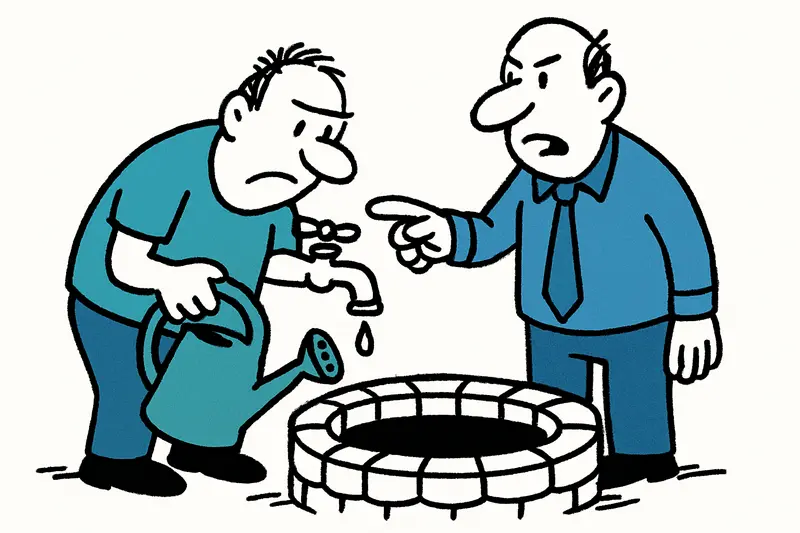For weeks, municipalities imposed usage restrictions: pools, garden irrigation, and car washing are prohibited in many areas. Causes: less rain, higher consumption, and aging pipes.
When the tap runs dry: everyday cutbacks on Mallorca
Early in the morning on a side street in Palma one usually hears the clatter of buckets and the beeping of delivery vans. This year the sound is different: fewer watering cans, more discussions about savings plans. In several places on the island—from Sóller to Pollença—water restrictions have been in place for weeks. Pools may no longer be refilled, garden irrigation and private car washing are prohibited in many areas.
How truly scarce is it?
Measurements show: the underground reserves are significantly lower than usual. Currently, groundwater reserves are around 41 percent of their capacity. A comparable low was recorded last during the great drought of 2016. Back then, in the summer only about 8.4 liters per square meter fell — as opposed to the expected around 40 liters. Many locals still remember the dry summers of the past; this time the missing winter recharge seems particularly persistent.
Why is the problem so persistent?
It's no coincidence: more residents, more tourists, and rising consumption burden the sources. The island's population grew significantly in recent decades, and seasonal millions of visitors have joined—the tourism numbers have risen sharply since 2011. At the same time, the winter replenishment of reserves has lagged in recent years: where water levels used to reach above 70 percent, they now hover around 50 percent or less.
A further point often heard on site: dilapidated pipe networks. In some municipalities a substantial portion of drinking water is lost through leaks—sometimes more than half, according to technicians. Therefore the Balearic government is investing in infrastructure: in addition to expanding existing desalination plants, another large plant is planned for nearly 70 million euros, location likely Felanitx. In addition, hundreds of millions are allocated for pipe modernization and improved reuse of treated water.
What does this mean for people here?
Practically: anyone with a garden will switch off the sprinklers. Anyone who rents a holiday home must inform guests. The measures are uncomfortable, but they aim to secure drinking water supply. Many locals accept the rules with a mix of understanding and resignation — you hear comments like “We save, but it never seems to be enough.”
In the long term, the question remains how tourism growth, climate change, and infrastructure improvements will balance. In the short term: watch your water use — and perhaps no pool top-ups in the evenings anymore.
Similar News

Die Zeit auf Mallorca: Warum die Uhren hier anders ticken
Auf Mallorca läuft die Uhr offiziell anders als die Sonne — ein Erbe aus den 1940er-Jahren, das bis heute unseren Alltag...

Orange Weather Warning for Mallorca: Heavy Rain and Thunderstorms Set the Week
Aemet warns: Monday and Tuesday on Mallorca are under orange alert. Heavy rain, floods, and traffic disruptions are poss...

Life-threatening swimming accident in Ibiza: 73-year-old revived on the beach
During severe storms, a 73-year-old visitor swam despite a red flag. Lifeguards rescued her, and she is now seriously in...

Mummified Body Found in Abandoned House Near Santa Margalida
Between Can Picafort and Son Serra de Marina, teenagers discovered a mummified corpse in an abandoned house. Identity an...

Large Rockfall Blocks Ma-2141 Road Near Sa Calobra
After heavy rainfall, several rock blocks toppled onto the winding Ma-2141 toward Sa Calobra over the weekend. The road ...
